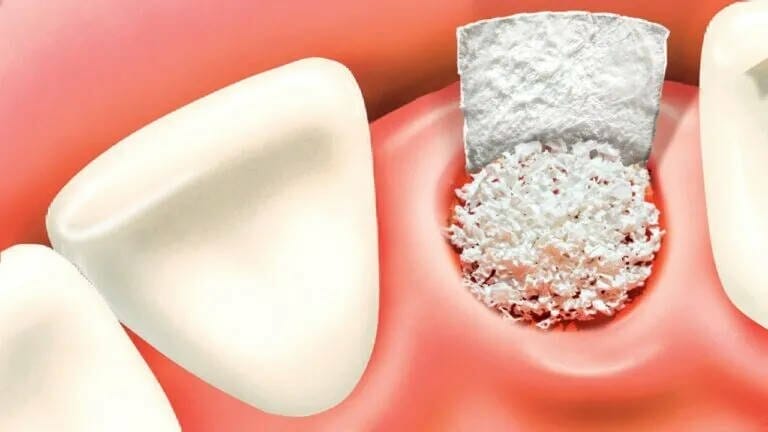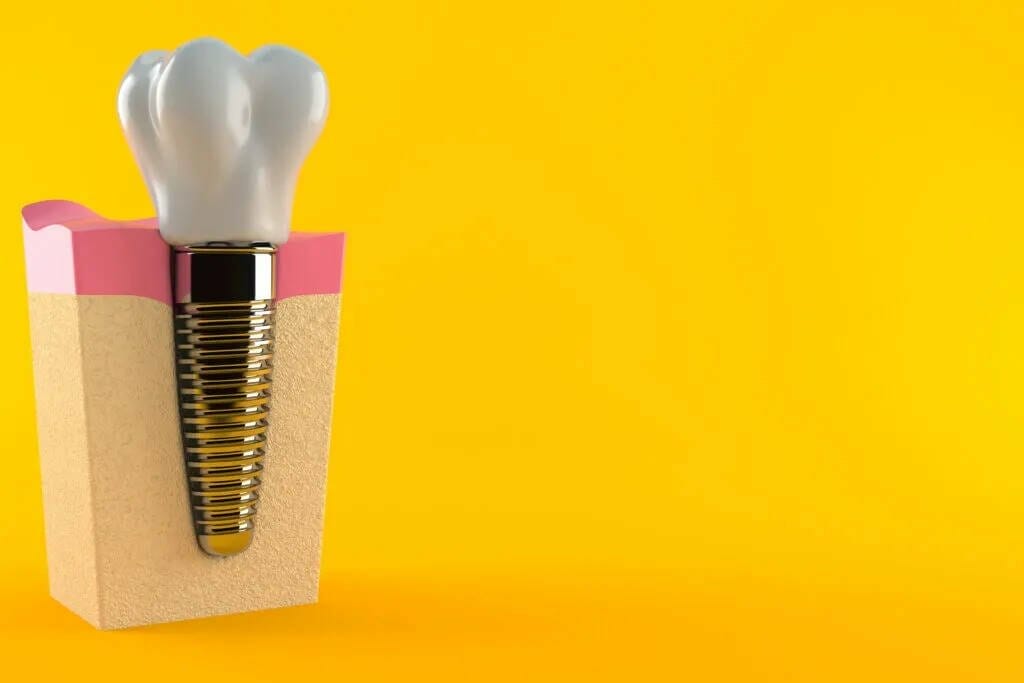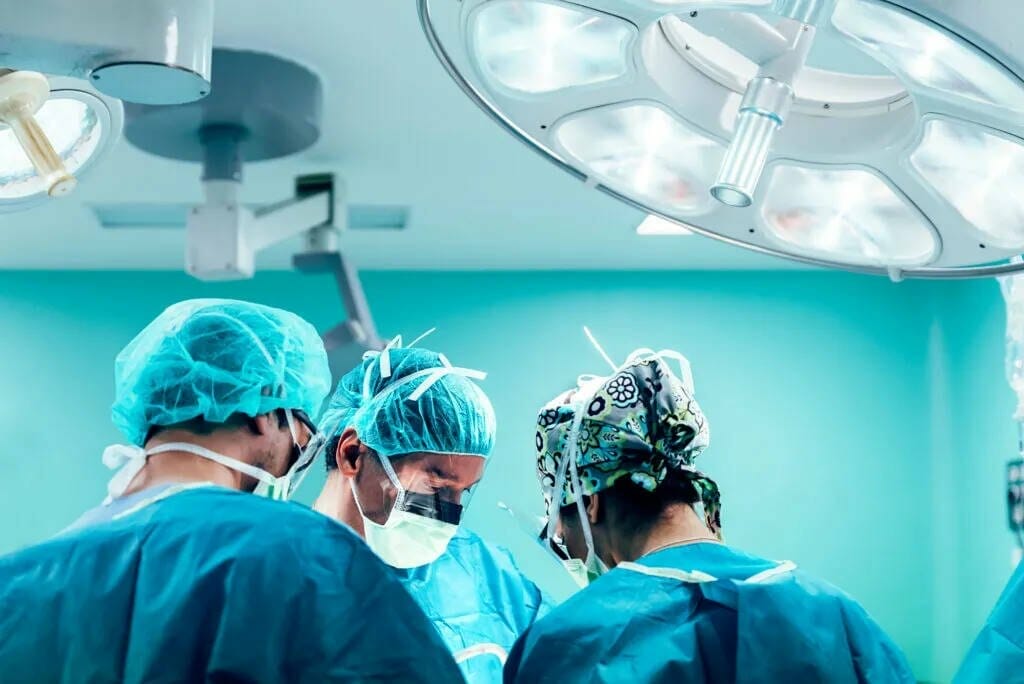Bone grafting is a broad term describing a procedure where a mixture is placed in direct contact with live bone with the goal of new bone formation.
At our Kitchener Dental Clinic, we discuss the placement of graft material following tooth extraction to minimize bone and gum tissue loss that results when an extraction socket is left untreated. This is a specific bone grafting procedure called “Socket Preservation”. Socket preservation is an inexpensive procedure and is covered by many dental insurance plans. The advantages of socket preservation include:
Book a consult to discuss Bone Grafting & Socket Preservation with Dr. Kyle Hornby now. Call us at (519)-576-8160 Or Schedule Your Appointment Online.
Oral Surgery in Kitchener: What is involved in having socket preservation completed and how long does it take?

I perform socket preservation grafting immediately following dental extraction.
Here's how we do it...
The extraction socket is first thoroughly cleaned and rinsed. Next, bone graft material, which typically has the consistency of a thick putty, is placed directly into the extraction socket. A foam-like membrane or barrier is placed over the graft and the opposing gum segments are sutured to seal the healing site. A dental radiograph is taken to ensure proper graft placement and density. You will receive specific post-operative instructions to ensure proper healing of the socket preservation graft. Typically, graft healing is sufficient after 4-5 months to enable placement of a dental implant. Restoration with a dental bridge can be completed after 3 months healing in most cases.
Socket preservation adds roughly 3-5 minutes to the duration of a dental extraction procedure. Our patients find socket preservation to be a comfortable and painless procedure.
Without socket preservation grafting, you will lose a significant amount of bone height and thickness as the extraction site heals and remodels. Here are a few complications that can arise due to post-extraction bone loss:
So, we can see that there are huge benefits to socket preservation procedures. However, where you are not planning to replace your lost tooth, the procedure may not have much value to you. And treatment decisions in Dentistry, as in many other realms, should be based on value. So the best practice is to ask your Kitchener Dentist what benefits a socket preservation treatment will have for you!
The Ontario Dental Association (ODA) Fee Guide for Family Dentists suggests a fee of approximately $250 for a socket preservation procedure. The Fee Guide also dictates a fee for materials (i.e. the socket graft material). This fee is typically in the range of $75 – $125 depending on the size of the extraction sockets and the volume of graft material used in the procedure. So, a total fee for socket preservation would come in at approximately $350.
Guided tissue regeneration is a more complex form of bone grafting that is utilized when one or more walls of an extraction socket are broken or lost during extraction. The procedure involves use of similar components compared to socket preservation. The fundamental difference is that a membrane or barrier must be extended over the graft material adjacent to the broken or fractured wall of the extraction socket. This barrier prevents invasion of the bone graft by gum tissue cells which would compromise formation of high-quality bone. Instead, bone tissue cells have unimpeded access to the graft enabling formation of robust, new bone.

Bone grafting can be carried out easily prior to restoration with dental implants. Grafts will increase bone volume in and around dental extraction sites. This provides adequate bone to support the dental implant screw and to support nicely contoured gum tissues around your implant crown. Ideally, bone grafting is completed at the time of tooth extraction but may also be completed years after the extraction in many cases.
Dental Bone Grafting Materials
Materials for bone grafting vary. Generally, there are 3 categories:
After our Dentist completes a bone graft, they will place a protective covering and use sutures to close the gums over top. The graft takes 4-5 months to fully heal into normal jaw bone. Typically, your Dentist will remove stitches about 4-6 weeks after grafting. At this point, your gums will have healed completely but bone will continue to remodel and heal under the surface until a full 4-5 month healing period is complete.
During healing, you'll need to be very careful around the treatment site. This will include avoiding sharp foods that can damage both graft and gum tissue. Your Dentist will also instruct you on gently cleaning around the area to avoid post-operative infection.
You may also receive an anti-microbial oral rinse to prevent infection.

You don’t necessarily need a referral to have routine grafting and socket preservation completed. Some Dentists complete additional surgical training to provide these services directly to their patients. Having a Family Dentist in Kitchener that provides bone grafting, socket preservation, and guided tissue regeneration simplifies the restorative process while eliminating extra referrals and appointment time and this minimizes your fee burden. Call our Kitchener Dental Clinic today at (519) 576-8160 to book a consult with Kitchener Dentist, Dr. Hornby, regarding bone grafting and advanced restorative procedures.
Schedule an Appointment Now
Service
Routine Dentistry & Tooth Repair
Oral Surgery & Tooth Removal
Prosthetic Dentistry & Tooth Replacement
Protective/Preventive Services
Teeth Whitening

OFFICE HOURS